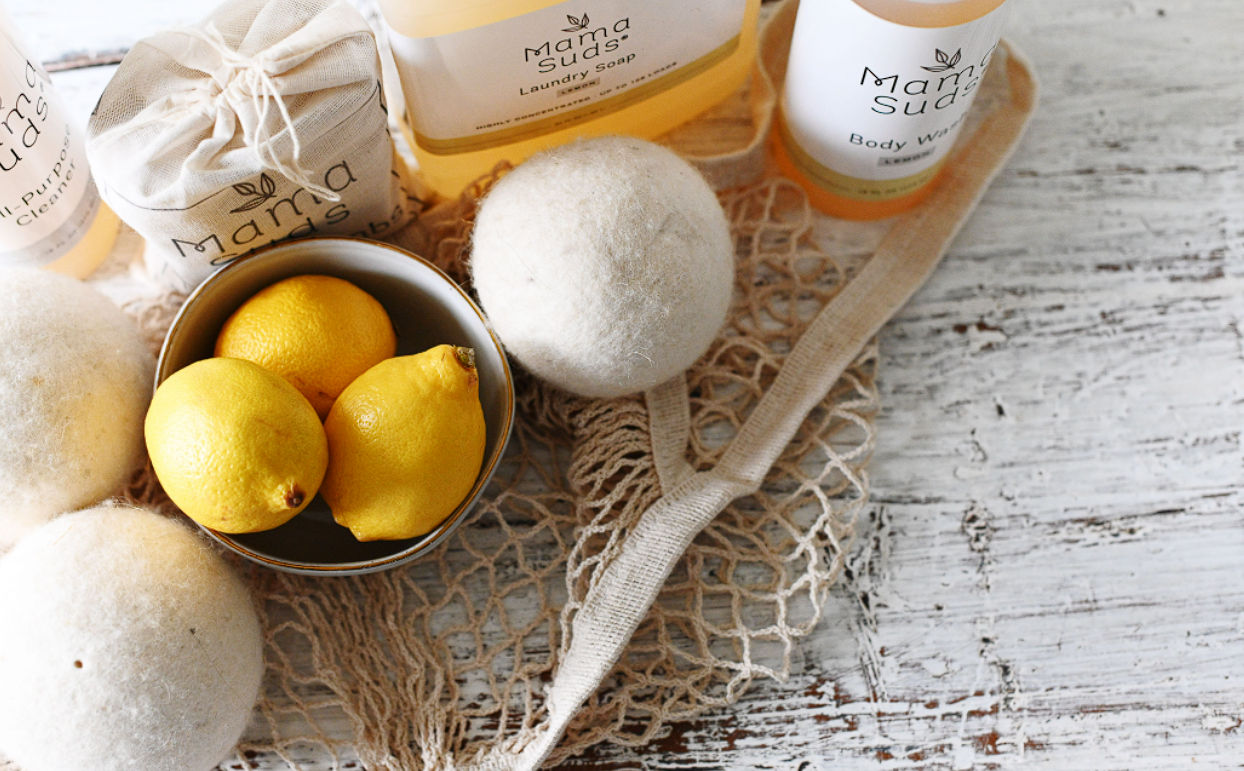
The CleanSuds Blog
Where education and truthful facts are easy to come by.
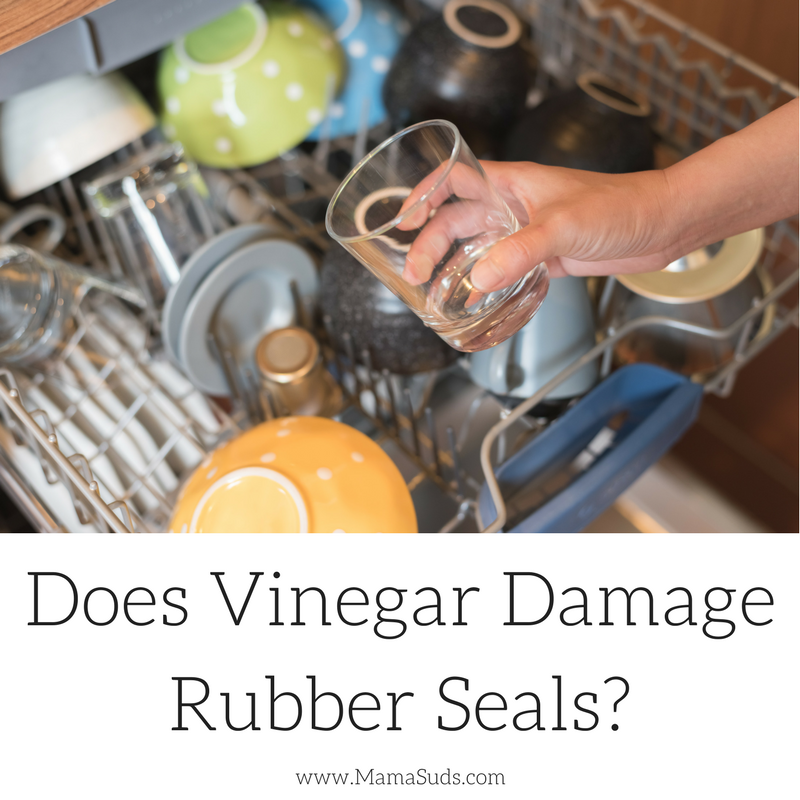
Does Vinegar Damage Rubber Seals?
• The pH of distilled white vinegar measures between 2.4-3.5 and has a lower pH than commercial rinse aids containing citric acid.
• Use a small glass filled with white vinegar on the top rack of your dishwasher to avoid contact with the rubber seals in the rinse aid dispenser when using vinegar in the machine.
• Purchase an all-natural, biodegradable dishwasher powder detergent with a sample pack option or opt for an all-natural laundry detergent soap free from synthetic ingredients, fragrance and dye.
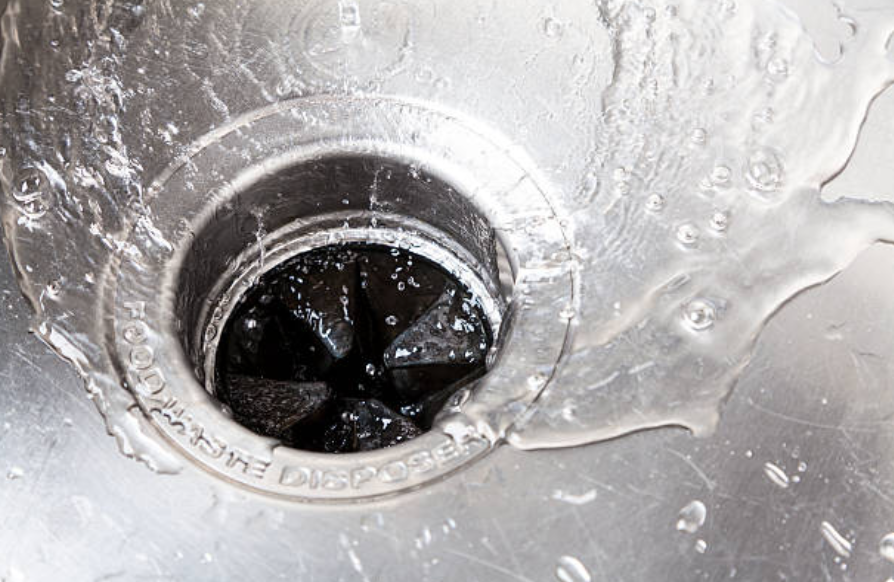
Keeping Your Waste Disposal Clean And Green
Keeping Your Waste Disposal Clean And Green
With 7 million new shipments each year, the waste disposal unit is an essential part of an American kitchen. From 20 somethings to suburban families, everyone relies on this nifty appliance to get rid of their waste easily and effectively. It can be a major pain when it suddenly refuses to work. Fortunately, you can easily prevent a waste disposal unit from running into these issues. To keep your unit running smoothly, all that you need are a few cleaning tips that are also easy to follow.
What not to put in the disposal
One of the simplest ways to maintain cleanliness of a waste disposal unit is to only “feed” it things that it could process easily. Ensure that you understand the ground rules about what to put in the unit and what to dispose outside of it. By adopting this simple practice, you can make sure that the unit functions issue free. Knowing what to put down the unit will not only keep it running well but will also maintain its long-term hygiene. Items such as coffee grounds and potatoes can stick to the disposal pipe, where they cause a gradual buildup of bacteria. This can also clog your kitchen sink through the disposal unit. Therefore, whatever you do, try not to put such items in the unit.
Use the disposal only when you absolutely need to
The popularity of waste disposal units has a major reason behind it. Since you can dispose of leftover food and save it from going to landfills, the idea catches the attention of those of us who want to be as eco-friendly as possible. But while you may be doing this with the thought of helping the environment, these units actually do more harm than good. Try using them only when going to the recycle bin is not an option. It will not just be friendly to the environment, but will also keep the unit in its best shape due to moderate usage.

Develop a cleaning routine to maintain your unit
Following stringent rules on what to process through the waste disposal unit and how frequently to use it will go a long way. However, you will still need to keep the unit cleaned to ensure that you are not working on a germ infested sink. To achieve the desired level of hygiene, you can use everyday staples from your pantry such as vinegar, baking soda, and salt to keep your waste disposal unit pristine.
Lastly, do not forget to keep regular checks scheduled with a plumber every few months. This practice will help you eliminate any problems before they become too big to handle. These few methods will not just keep unwanted smells at bay while also maintaining the hygiene of your waste disposal unit, but can help keep your drain running smoothly for a long time.
Contribution by freelance writer Sally Preston
Home Cleaning Prep All Expecting Moms Should Complete
There is nothing quite as exciting (or as exhausting) as the last trimester of pregnancy. The baby is coming soon and there are so many tasks to do in those last few months to be ready for your baby's arrival. Even if you are adopting or making use of a surrogate, preparing your house for the changes a new child will bring seems almost overwhelming!
As you head into the last few months before your baby’s arrival, taking the time to prepare your home will help you better handle all the changes that come. Getting your home cleaned and organized before you are juggling the demands of a newborn and your other responsibilities will give peace of mind and help you be prepared to handle any new mess or clutter that crops up. Consider tackling some of these key areas as you clean to better prepare.
Kitchen
The kitchen is the center of your home, where food and family meet on a daily basis. Take a few hours to inspect and prioritize these areas in your kitchen.
Refrigerator
Dedicate time to cleaning out your refrigerator and freezer before your baby arrives. Check expiration dates on items and throw away anything past expiration as well as any food or leftovers that have been lurking in the back of your refrigerator. Wipe down the shelves with warm water and vinegar.
Pantry
Just like your refrigerator, dedicate a chunk of time to going through your pantry and throwing away food items that are past expiration. Unopened cans or boxes that are not at expiration can be donated to your local food pantry. Stock up on quick, healthy snacks that you can grab on the go when you are home with your new baby. Keep a shelf stocked with bottles or breast pump supplies and be sure to rearrange a little space for kid’s snacks and food as they grow.
Laundry Room
Babies produce an incredible amount of laundry, much of it stained. Be ready to tackle stains and higher volumes of laundry.
Cleaners
Stock up on baby-safe cleaners for your newborn's clothing, sheets, and towels. Take it a step further and purchase laundry cleaners that are both good for the environement and safe for your baby.
Hampers
Make sure you have adequate hampers with distinct compartments to sort your baby's clothes separately from the rest of the family.
Baby’s Room
You’ve probably been in a nesting stage for a while, but now is the time to double-check, dust and clean your baby’s future room.
Changing Table
No nursery room would be complete without one of these. Stock up your table with extra diapers, wipes, power, creams, as well as extra clothes. Organize the drawers in a way that makes sense for you during changing. Or don't use one at all (I never did!). I kept a basket with changing supplies in the room we were in the most and just changed my babies on the floor.
Closet
If you’ve received any baby clothes, sheets, or other future supplies, take time now to organize them in the nursery closet. Clothing that won’t fit right away can be packed away or hung at the back. Extra crib sheets and pillows should be stored on higher shelves.
Tackling cleaning and organizing tasks as you prepare for your new baby is a smart way to spend those last few months before they arrive. Do some organization and be sure you have a plan for future cleaning and organization as well.
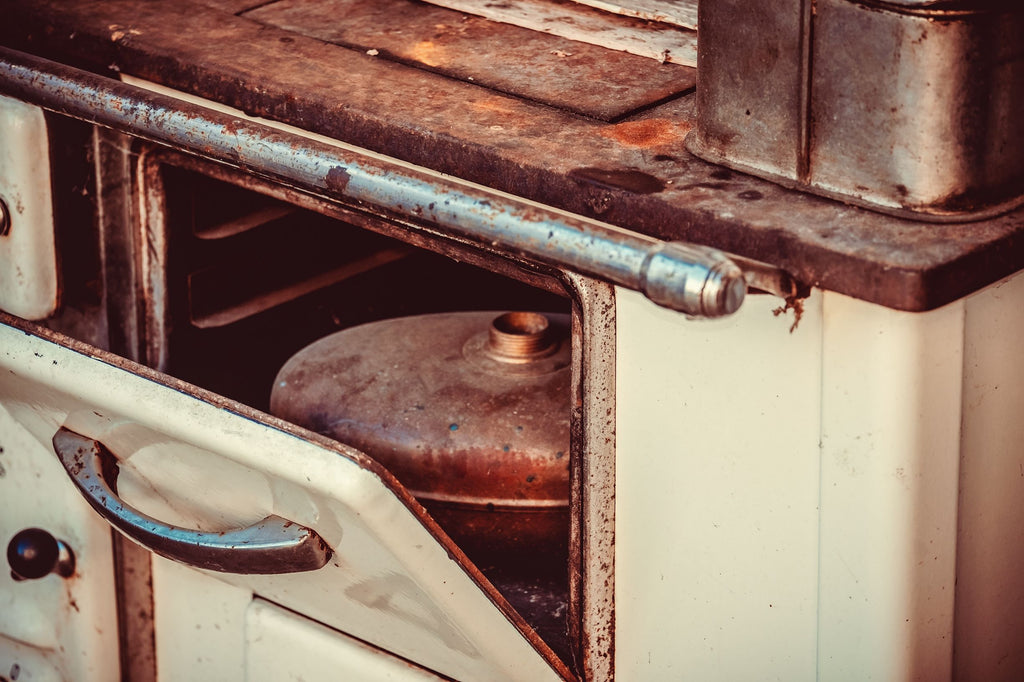
The Surprising Way to a Clean Oven Without Fumes
• Michelle has recently found her internet doppelgänger in Carol due to similar interests.
• To avoid the nasty fumes from self-cleaning an oven, Carol suggests simply using baking soda and vinegar.
• The process is easy; spread an even layer of baking soda on the bottom of the oven and pour white vinegar over it. Close the oven door for 3 to 5 hours, depending on mess size.
• After the time is up, use a towel to wipe off vinegar and baking soda mixture that has formed from mixing the two ingredients together.
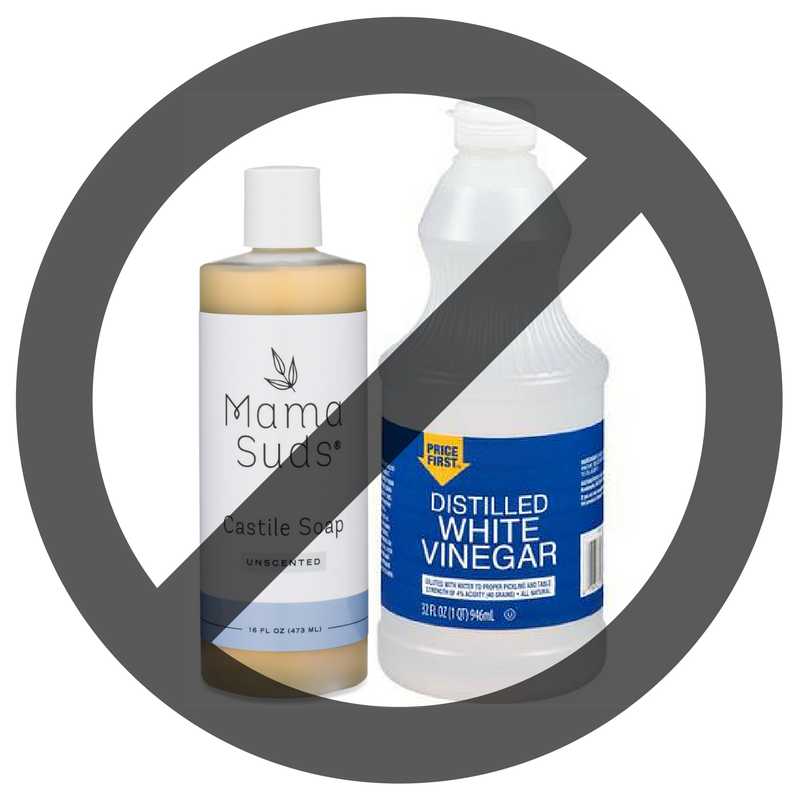
Mixing Vinegar and Castile Soap
• Castile soap has an alkaline pH of 8-10ish and vinegar has an acidic pH of 2-3ish.
• To prove this, a glass measuring cup filled with an ounce of castile soap and 15 ounces of distilled water had a tested pH level of 9.7.
• Adding an ounce of Distilled White Vinegar to the mixture resulted in an almost dead on neutral pH of 6.9, meaning that the soap's cleaning power was neutralized.


